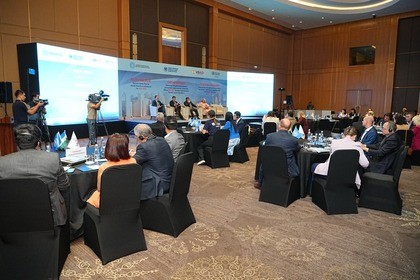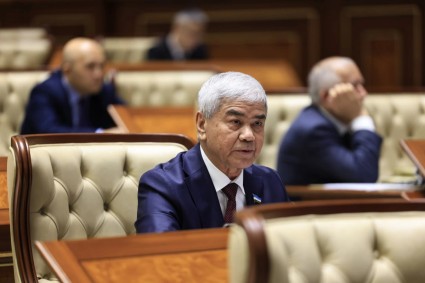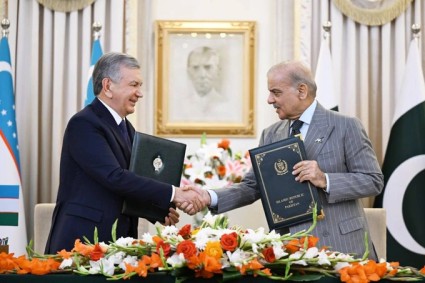Uzbekistan National Action Plan for Public Health Security for 2024-2028 has been developed and was presented during a political dialogue in Tashkent on September 18-19.
The plan was developed by a working group, which included coordinators from all ministries and departments in charge of implementing the International Health Regulations (IHR 2005). Technical assistance was provided by the World Health Organization (WHO), and financial support was provided by the United States Agency for International Development (USAID).
“The National Plan is a vital tool that ensures that all stakeholders work together to strengthen Uzbekistan’s public health system and effectively respond to health emergencies,” said Ashina Khalakdina, WHO Representative in Uzbekistan.
A lot needs to be done in Uzbekistan to be better prepared for health threats and challenges, noted Bakhodir Yusupaliyev, Head of the Committee for Sanitary and Epidemiological Welfare and Public Health.
The strategic goal of the plan is to improve Uzbekistan's preparedness to respond more effectively to health emergencies through the implementation of the IHR core capacities, the WHO office told Gazeta.uz.
This goal will be supported by the following actions:
- Improving preparedness to respond to health emergencies and better planning, improving the use of IHR capacities to strengthen interaction and coordination between agencies;
- Improving the early warning system and detection of potential public health threats, including infectious disease emergencies;
- Expanding the implementation of IHR capacities and strengthening interagency and intersectoral cooperation;
- Implementation of the One Health and All Hazards approaches at the government, ministry and department level.
The action plan covers 19 technical areas, 96 special areas and includes 340 activities. It will help prevent, protect, control and provide public health response to limit the international spread of diseases in accordance with risks.
The plan covers areas such as biosafety, strengthening of national laboratories, resistance to microbiological pathogens, zoonotic diseases, food safety, population immunization, epidemiological surveillance, human resources, public risk communication, emergency preparedness, emergency response, interaction between public health and security authorities in emergency situations, dispatch and reception of medical response equipment and personnel, chemical safety, radiation safety and others.
The first draft of the plan was completed in 2023, and the final document was prepared at a multi-stakeholder expert workshop in March 2024 with the participation of more than 40 key stakeholders representing the government and society.
The action plan has already been signed by many ministries, each of which will implement its part of the plan, and the process will be overseen by the Cabinet of Ministers. The Ministry of Health will ensure intersectoral cooperation, lead the implementation of the plan, organize monitoring and evaluation, and report to the government.
In May 2005, the 58th World Health Assembly adopted a revised version of the International Health Regulations (1969). The IHR (2005) aim to "prevent, protect against, control and ensure a public health response to the international spread of disease in a manner that is proportionate to and limited to public health risks, and which avoids unnecessary interference with international movement and trade." The IHR call on countries to develop and maintain national capacity to rapidly identify threats to human health and take prompt action to prevent a public health event from becoming a public health emergency of international concern.















